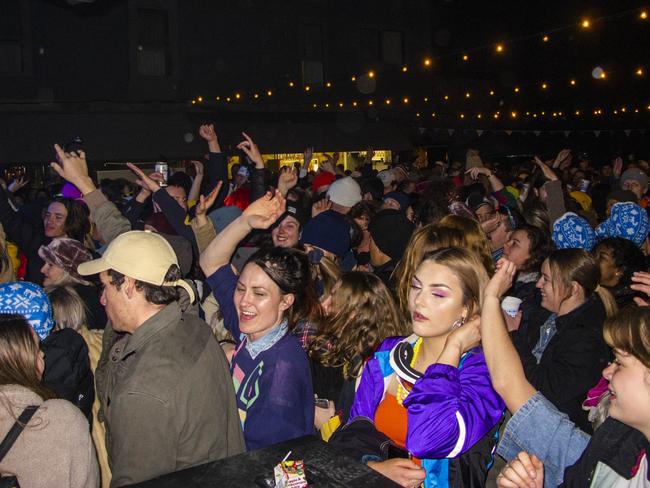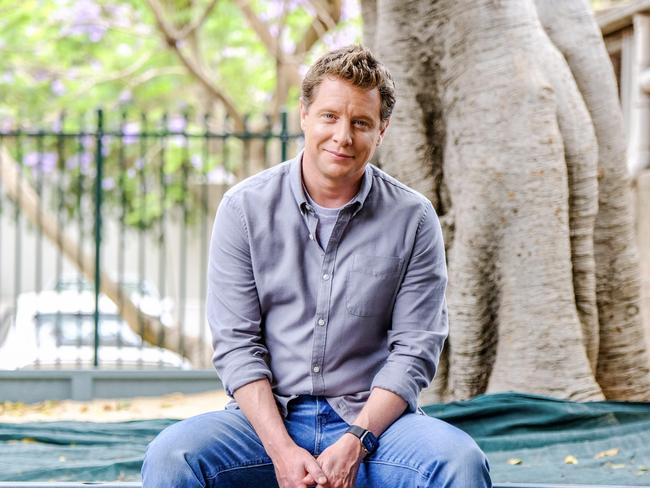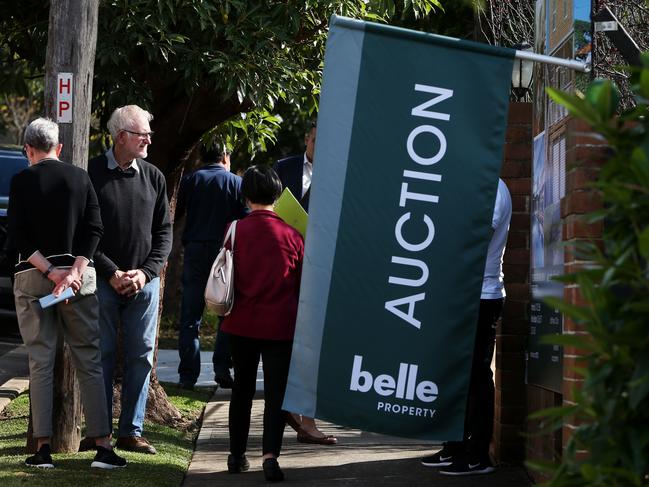Federal Budget 2021: Barefoot Investor weighs in on the biggest financial party in history
Josh Frydenberg has done a good job with the Federal Budget but he’s created a policy that will lead many into financial insecurity, writes Scott Pape.
Barefoot Investor
Don't miss out on the headlines from Barefoot Investor. Followed categories will be added to My News.
G’day!
I’m so glad you stopped by.
Welcome to the biggest financial party in history!
My name’s Scott, and I’ll be your guide for the evening.
You’ll see that things are starting to get a little loose … look at those young lads over there doing crypto in the corner.
‘Dogecoin to the moon!’
Of course what really got the party firing was the Reserve Bank of Australia (RBA), who have supplied enough grog to everyone seriously smashed – in the form of the lowest interest rates in history – an almost unbelievable 0.1 per cent.
The RBA’s message is crystal clear: drink up on debt, and party hard. Buy shares! Buy a house! Buy another house! And if you even think about going soft – and having any money in a savings account – you will be severely punished. (You’ll end up with less money in your account, after the effects of inflation).
Tonight the Treasurer has announced a few signature cocktails in his big spending budget: he’s boosted funding to aged care, childcare, infrastructure, education, national security and mental health. Yet to be honest, his main goal is to get you to join the party. After all, his rosy budget forecasts will only happen if you get tipsy, and splurge what you squirrelled away in COVID.
Still, as you mingle, you may be asking yourself: when will this party end?
Honestly, no one knows when the music will stop. Yet end it will. After all, no party goes on forever.

However, I don’t want to be the teetotaller who walks around the party snatching away people’s beers and replacing them with mineral water, saying “you’ll thank me in the morning!”
Because the truth is, there are a lot of people who will be fine when interest rates eventually rise.
In fact, many will be happy: they’ll (at last) earn some interest on their savings!
Yet there will be others who will get caught doing debt shots, and they’ll wake up in a hell of a mess.
In fact, let me introduce you to 10,000 of them:
The 10,000 single parents who take up the government’s offer to help them borrow 98 per cent of the purchase price of a home (plus the additional 10,000 Aussies who’ll only need to stump up a 5 per cent deposit).

And what about first home buyers?
Well, they’re struggling to get to the party. And so in the budget the government has increased the amount that they can withdraw from super under their ‘First Home Super Saver Scheme’, from $30,000 to $50,000. Now in the past I’ve been sceptical about the idea of taking money out of your super to buy a house, (as have the super funds … though I suspect they’re more worried about losing the fees).
My beef is that all it’ll achieve is to push up the price of properties, and benefit the sellers, not the buyers.
And I still think that’s the case.
However, I own my own home, so it’s easy for me to philosophically poo-poo such things.
I’m sure there are plenty of would-be first home buyers who are right now struggling to earn a piddling amount of interest on their savings, and watching prices boom out of their reach, who will absolutely welcome it.
After all, young first home buyers have to compete against investors, and as a result they all-too-often end up with the footprints of negatively geared property investors printed squarely on their backs.
Now, the Treasurer should be congratulated for steering us through the hardest year of our lives.

Personally, I think he’s done a great job.
Yet helping single parents buy a home with just a two per cent deposit, is what I call ‘dancing on the table with your knickers around your head’, type of policy.
Look, as a not-for-profit financial counsellor, I work with a lot of single parents, and I understand how they desperately want financial security for their kids. Yet this policy will lead many of them into financial insecurity.
Why?
Because the costs of maintaining a home often work out to be much higher than you expect. And, you can’t control your biggest expense of all: the interest rate on the debt. And that’s bound to head higher, eventually.
There’s a similar scheme in WA called Keystart. When the Perth property market took a dive a couple of years back I got frantic letters from people who felt ‘trapped’ in a property that was worth less than they’d paid for it, and that was costing them too much in repayments.
Interestingly, the big banks are beginning to lift their four and five year fixed rate loans.
They’re preparing to (eventually) leave the party.
The question is, are you?
Originally published as Federal Budget 2021: Barefoot Investor weighs in on the biggest financial party in history




